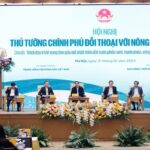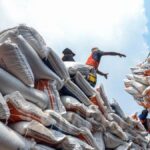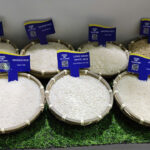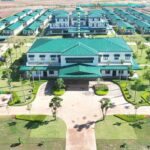The United States is a significant export market for Vietnam, especially for agricultural products. However, the number of exported agricultural products and their value do not match Vietnam’s potential.
RAW EXPORTS, LOW VALUE
According to statistics from the Ministry of Agriculture and Rural Development, the United States is currently Vietnam’s largest export market. In the first eight months of 2024, the estimated trade surplus with the US reached 68.1 billion USD, a 28.6% increase compared to the same period last year. Of this, agricultural, forestry, and aquatic product exports reached 8.58 billion USD, accounting for 21.4% of total exports to the US, a 23.5% increase compared to the same period last year. Key export products include timber, seafood, and cashew nuts.
While Vietnamese food products are widely available in many international markets, and our export capacity is constantly improving, penetrating the US market remains a challenge for Vietnamese businesses.
This is mainly because Vietnam primarily exports raw materials in bulk packaging without labels. Importing countries then further process these products or label them as their own.
At the seminar “US Regulations in the Food Industry,” organized by the Ho Chi Minh City Trade and Investment Promotion Center (IPTC) on September 13, 2024, Ms. Ho Thi Quyen, Deputy Director of IPTC, said that Vietnamese agricultural raw materials are often imported by US companies or third parties for processing and then sold under their brands. As a result, the value captured by Vietnamese agricultural producers and exporters remains low.
“Building brands for our products is still a significant challenge for many businesses and the Vietnamese food industry,” shared Ms. Quyen.
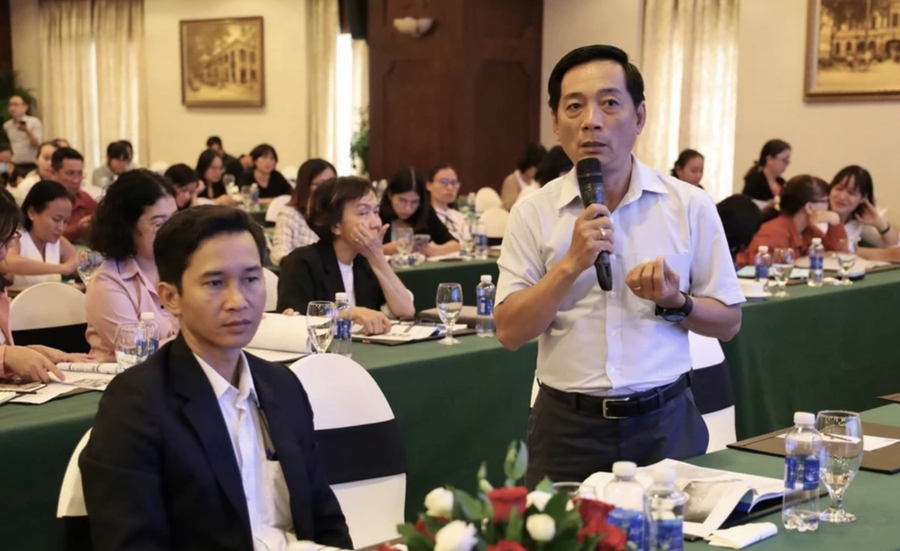
Market opening for agricultural products from both countries is a top priority.
The issue of market opening for US-Vietnam agricultural products was given special attention during the working session between a US agricultural trade delegation of over 100 people, representing US agricultural associations and businesses, led by Ms. Alexis Taylor, US Department of Agriculture (USDA) Deputy Secretary, and the Ministry of Agriculture and Rural Development of Vietnam on September 12, 2024.
At the meeting, Vietnam hoped for continued US support in improving quarantine procedures and ensuring food safety to facilitate Vietnamese agricultural products’ access to the US market, including the export of plums to the US. Vietnam is also finalizing procedures to open its market to US imports of seedless oranges, tangerines, and lemons.
NEED FOR PRODUCTION MODERNIZATION
The US imports millions of tons of food from over 200 countries and territories annually, accounting for about 15% of the country’s total food consumption.
To take advantage of this market, Vietnamese businesses must understand and utilize the benefits and policies within the Food Safety Modernization Act (FSMA).
One of the most critical programs of FSMA is the Foreign Supplier Verification Program (FSVP), which requires food importers to perform necessary verification steps and then assess the compliance of foreign suppliers with US food safety standards.
At the seminar, speakers shared success stories of typical enterprises and their export processes to the US. These enterprises emphasized the need for Vietnamese exporters to proactively build a quality control mechanism through steps such as hazard analysis, production control, hygiene and safety assurance, allergen control, and implementing a safe supply chain program.
To meet these requirements, Vietnamese enterprises need to modernize production, apply new technologies, and adopt green and closed-loop production processes. This also requires support from government programs that promote the modernization of the agricultural and food industries.
According to Mr. Dang Bui Khue, Director of Training and Certification for Sustainable Development at Tuv Nord Vietnam Co., Ltd., to control the quality of imported food, the US Food and Drug Administration (FDA) has issued the Food Safety Modernization Act (FSMA). FSMA shifts the focus from reacting to food safety incidents to prevention.
FSMA not only affects distributors and food products in the US but also directly impacts facilities wishing to export to this market.
“The Foreign Supplier Verification Program (FSVP) requires importers to perform necessary verification steps and then assess the compliance of foreign suppliers with US food safety standards,” said Mr. Khue.
According to Deputy Minister of Agriculture and Rural Development Phung Duc Tien, while the US market has a massive consumption capacity, conquering it is not easy for Vietnamese enterprises. Therefore, businesses need to focus on building raw material regions associated with growing area codes, packaging codes, and preliminary processing activities, along with well-planned trade promotion strategies…
The Green Revolution: 9 Key Issues for Developing an Eco-Friendly Agriculture, a Modern Rural Economy, and a Cultured Farmer
“On December 31st, Prime Minister Pham Minh Chinh chaired a conference with farmers, themed ‘Igniting the Aspiration for Prosperity to Build a Prosperous and Happy Nation; Confidently Stepping into the New Era.’ The Prime Minister emphasized the need to review and refine policies to accelerate and boost the goal of developing ecological agriculture, modern rural areas, and cultured farmers.”
The Booming Industry Group: Vietnam Sets a New Record with Over $62 Billion Inflows
This particular sector has been a powerhouse for Vietnam, generating tens of billions of dollars in revenue over the past 11 months alone.
“Thaco Agri Invests in its People for Future Growth”
With a strong foundation in industrial management and a highly integrated business model, THACO AGRI is revolutionizing the agriculture industry. As a pioneer in large-scale organic farming, we harness the collective strength of THACO’s member corporations, leveraging their expertise in industrial governance and complementary production capabilities. Our focus on developing an industrial-agricultural workforce equips us to lead the way in modern farming practices, driving sustainable growth and innovation in the sector.
Unlocking Opportunities: ASEAN Businesses Thrive in Ho Chi Minh City
As Vietnam’s economic and financial powerhouse, Ho Chi Minh City is committed to fostering a conducive environment for investors and businesses to thrive. We are open for business and ready to collaborate for mutual growth and success.

